Saturday, Oct. 3
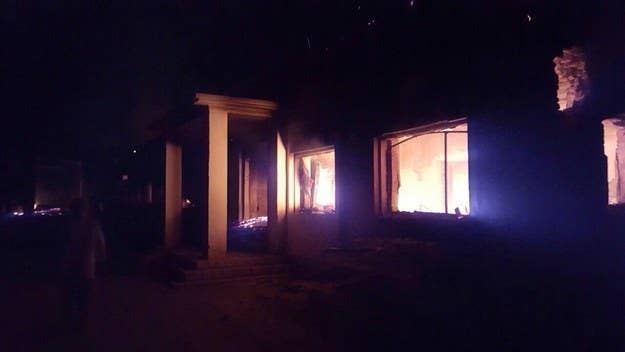
Shortly after midnight on Saturday, Lajos Zoltan Jecs was sleeping in the safe room at a Médecins Sans Frontières hospital in the northeastern Afghan city of Kunduz.
With alarming swiftness, Taliban militants had seized the city some five days beforehand, and Afghan forces and their NATO allies were fighting to reclaim it.
Since Sept. 28, the hospital had treated more than 390 wounded people, according to the medical charity, which is known as Doctors Without Borders in English.
As Jecs slept, more than 105 patients and caretakers were also in the hospital receiving treatment, as well as more than 80 MSF workers from Afghanistan and around the world.
"Around 2 a.m., I was woken up by the sound of a big explosion nearby," Jecs said in a statement posted to the charity's website. "At first I didn't know what was going on. Over the past week we'd heard bombings and explosions before, but always further away. This one was different, close and loud."
He and others in the safe room struggled to work out what was going on as the explosions continued. When they eventually emerged after the bombs stopped falling, they saw their hospital ablaze.
"We tried to take a look into one of the burning buildings," Jecs said. "I cannot describe what was inside. There are no words for how terrible it was."
"In the Intensive Care Unit six patients were burning in their beds," he said.
MSF later said the main hospital building had been repeatedly and precisely struck during the raid, while the rest of the compound was practically untouched.
By the time the flames went out, 22 people had died, including 12 of Jecs' colleagues and 10 patients, three of whom were children.
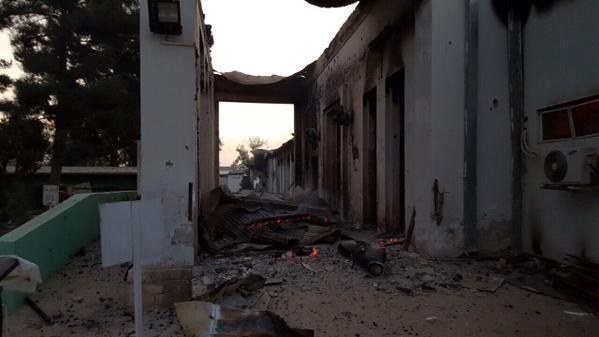
The first shocked statement from MSF made no guesses as to who had attacked the hospital, just noting the clinic had been "hit several times during sustained bombing and was very badly damaged."
Hours later, U.S. forces in Afghanistan released their first short statement: "U.S. forces conducted an airstrike in Kunduz city at 2:15 a.m. (local), Oct. 3, against individuals threatening the force," said U.S. Army Colonel Brian Tribus. "The strike may have resulted in collateral damage to a nearby medical facility. This incident is under investigation."
The next word from MSF was much more blunt. Saying that all indications pointed to the bombing being the work of the international coalition, MSF "demanded explanations" over what it was now calling a "grave violation of international humanitarian law."
"We demand total transparency from Coalition forces," MSF President Meinie Nicolai said. "We cannot accept that this horrific loss of life will simply be dismissed as ‘collateral damage.’”
By Saturday afternoon, Gen. John F. Campbell, the top U.S. commander in Afghanistan, had spoken with President Ashraf Ghani about what he called the "incident."
The U.S. military was now saying forces conducted the airstrike in the "vicinity" of the MSF clinic "against insurgents who were directly firing upon U.S. service members and assisting Afghan security forces."
On Saturday night, President Obama released a statement on the bombing, expressing his condolences for what he called "the tragic incident."
"The Department of Defense has launched a full investigation, and we will await the results of that inquiry before making a definitive judgment as to the circumstances of this tragedy," he said.
Sunday, Oct. 4
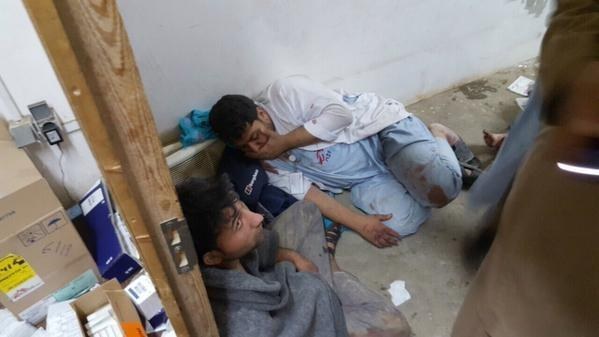
On Sunday, the U.S. again repeated its claim that insurgents had been directly firing upon Americans before the airstrikes.
MSF staffers denied, however, that any fighting had been taking place inside the hospital compound prior to the bombings. The group said it was disgusted by comments from Afghan officials that it had been harboring Taliban militants at the hospital.
"These statements imply that Afghan and U.S. forces working together decided to raze to the ground a fully functioning hospital – with more than 180 staff and patients inside – because they claim that members of the Taliban were present," MSF General Director Christopher Stokes said.
"This amounts to an admission of a war crime," he said. "This utterly contradicts the initial attempts of the U.S. government to minimize the attack as 'collateral damage.'"
NATO, the Pentagon, and the Afghan government had each launched investigations into the incident, but MSF demanded a "full and transparent" investigation by an independent international body.
Speaking to reporters while en route to Madrid, Spain, Defense Secretary Ash Carter promised there would be accountability.
"The situation there is confused and complicated, so it may take some time to get the facts, but we will get the facts, and we will be full and transparent about sharing them," he said.
Carter again repeated the statement that U.S. forces had come under direct attack: "At some point in the course of the events there did report that they, themselves, were coming under attack," he said.
But he was still not clear as to whether it had been U.S. airstrikes that had damaged the hospital.
"There was definitely destruction in those structures and the hospital. What I can't tell you is exactly how that transpired," Carter said.
Monday, Oct. 5
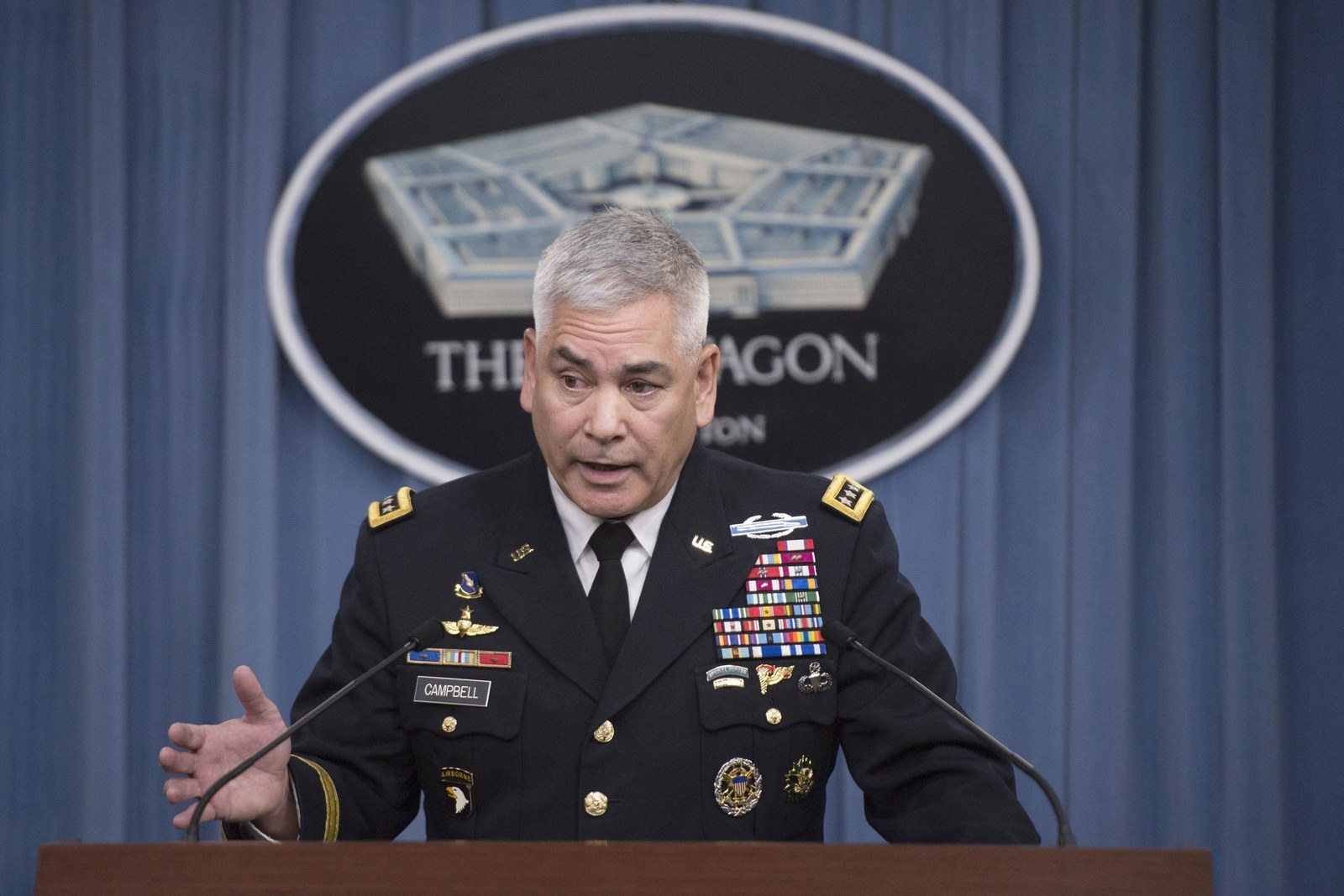
In a major "correction" to the earlier version of events, Gen. Campbell on Monday said it was Afghan forces, not American personnel, who were under fire and who had requested the strike.
“We have now learned that on Oct. 3rd, Afghan forces advised that they were taking fire from enemy positions and asked for air support from U.S. forces,” Campbell said, speaking at the Pentagon. “An airstrike was then called to eliminate the Taliban threat and several civilians were accidentally struck.”
“This is different from initial reports, which indicated that U.S. forces were threatened and that the airstrike was called on their behalf,” he noted.
The change in the U.S. story was not met well by MSF.
“Their description of the attack keeps changing – from collateral damage, to a tragic incident, to now attempting to pass responsibility to the Afghanistan government,” MSF General Director Christopher Stokes said in a statement. “The reality is the U.S. dropped those bombs. The U.S. hit a huge hospital full of wounded patients and MSF staff.”
“With such constant discrepancies in the U.S. and Afghan accounts of what happened, the need for a full transparent independent investigation is ever more critical,” he said.
Tuesday, Oct. 6
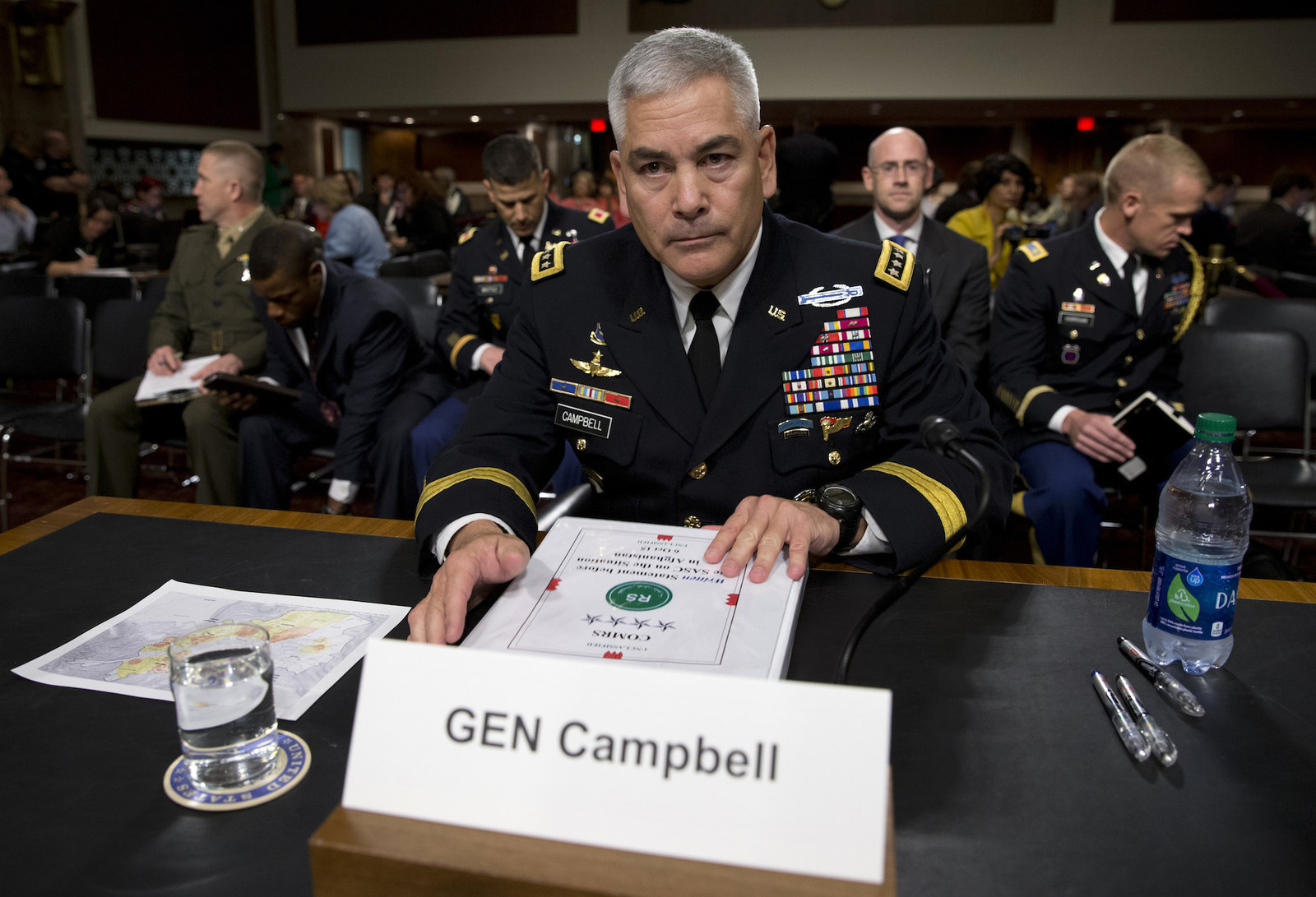
Appearing before a pre-scheduled hearing of the Senate Armed Services Committee, Gen. Campbell acknowledged for the first time that the hospital itself had been mistakenly struck.
He added that a U.S. special forces unit was in the vicinity of the hospital and talking to the aircraft that dropped the bombs.
U.S. forces "would never intentionally target a protected medical facility," he said.
MSF International President Dr. Joanne Liu issued a statement before Campbell's testimony, calling the attack unacceptable.
"Until proven otherwise, the events of last Saturday amount to an inexcusable violation of this law," Liu said. "We are working on the presumption of a war crime."
"This attack cannot be brushed aside as a mere mistake or an inevitable consequence of war," Liu said.
In a statement on Tuesday afternoon, Secretary Carter said people would be held accountable for the incident.
"The U.S. military takes the greatest care in our operations to prevent the loss of innocent life, and when we make mistakes, we own up to them," Carter said. That's exactly what we're doing right now.
"Through a full and transparent investigation, we will do everything we can to understand this tragic incident, learn from it, and hold people accountable as necessary," he said.

